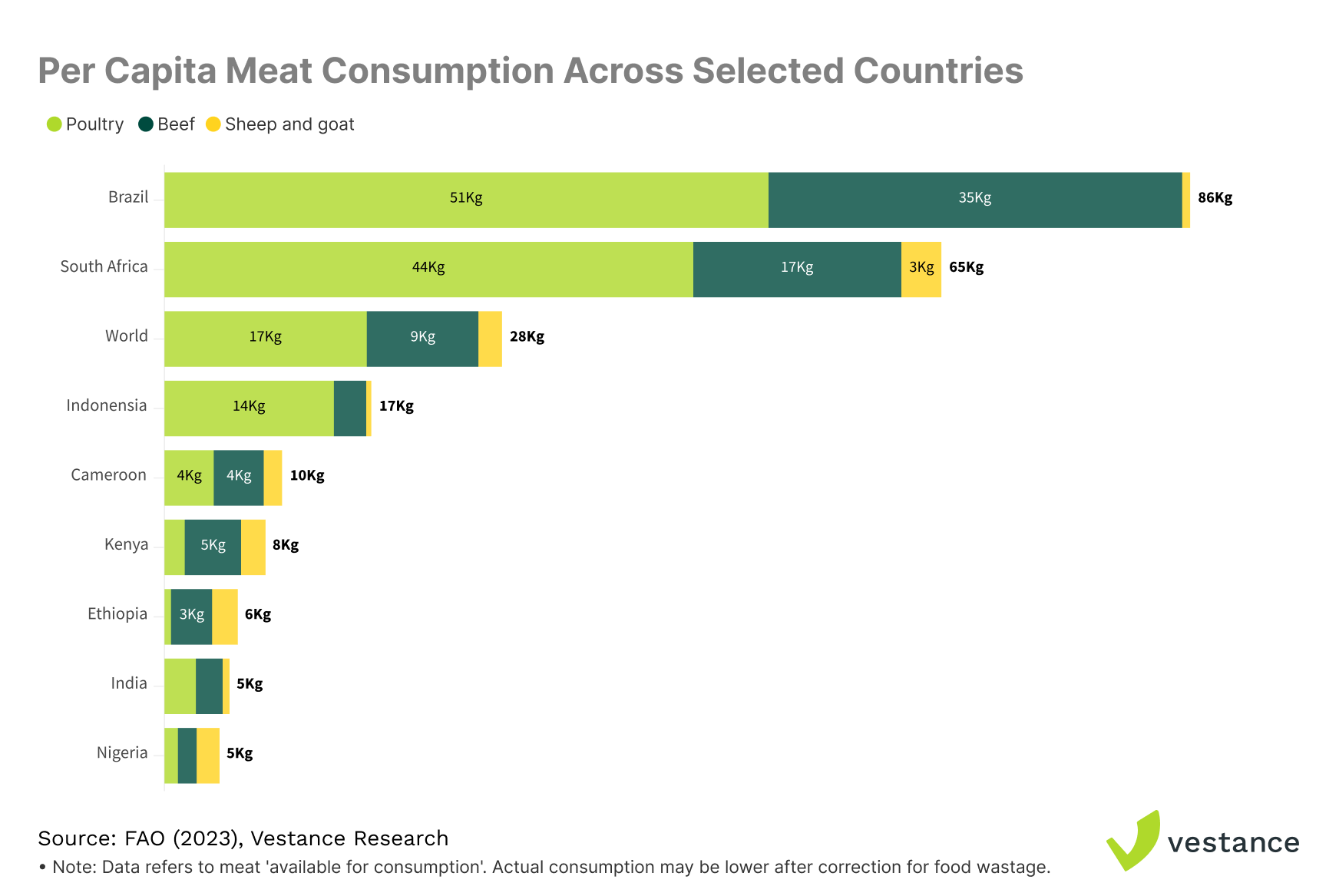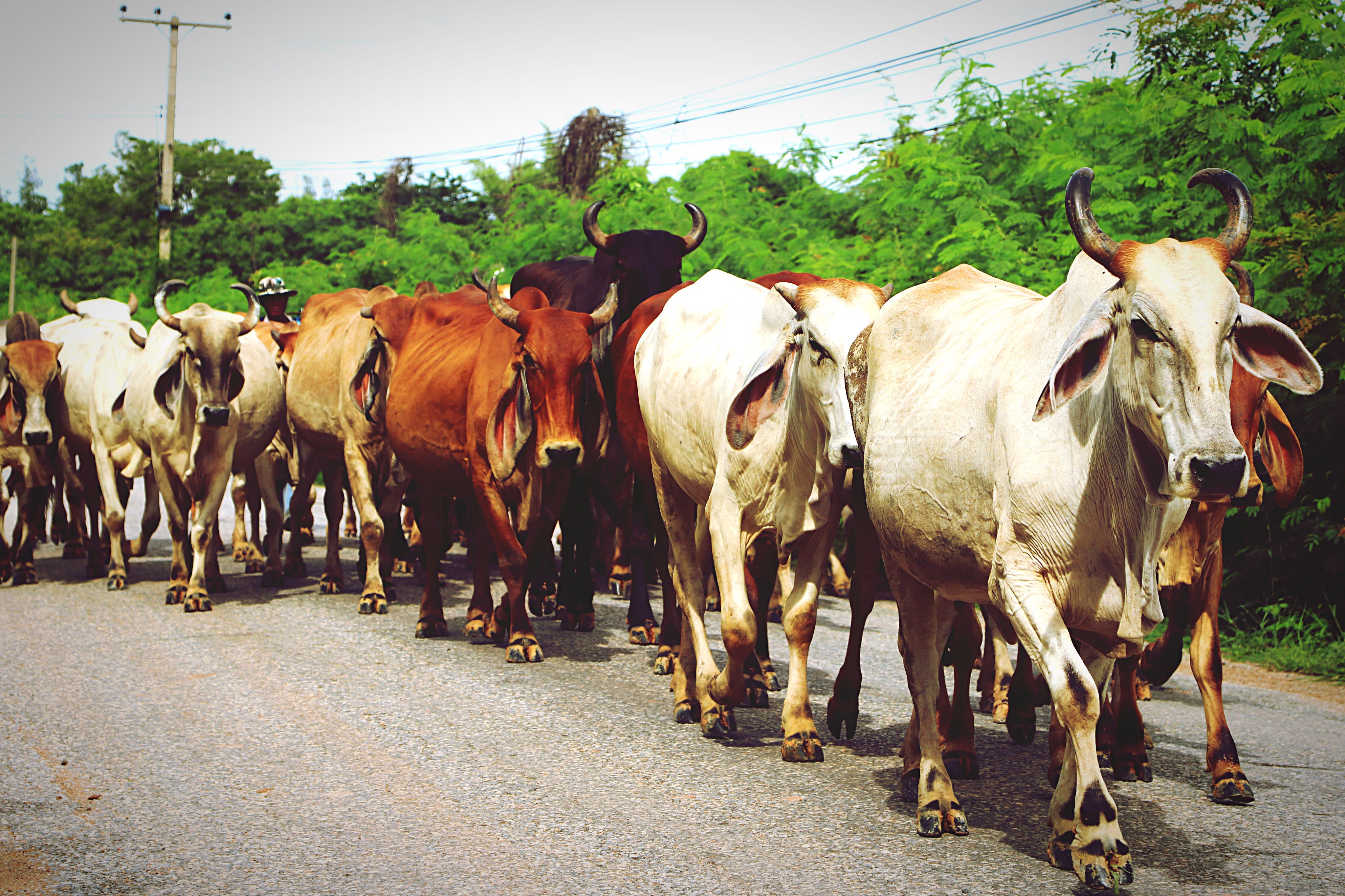Nigeria's beef sector operates under a pricing model that fails to reflect differences in the quality of cattle for sale. The pricing model is reminiscent of the global feedlot industry before the 1990s, when livestock was priced as commodities, with disregard for the animals’ quality by buyers and sellers.
Although the global livestock industry has greatly improved its pricing model, the case is different in Sub-Saharan Africa, as structural impediments still exist. Unfortunately, the consequences of this pricing model extend far beyond the farm gate. To make matters worse, investors view the sector cautiously because returns on investment can be hard to project.
However, is there a better way to fix pricing anomalies in the beef market? Adopting a transparent and reliable pricing mechanism could be the solution–an approach that benefits all stakeholders in the beef supply chain.
Pricing Mechanism of Nigeria's Beef Industry
In Nigeria, the beef industry is shaped by a unique geographical dynamic. Cattle are mainly produced in the north, while southern regions constitute the main consumer base. Thus, while the North is dependent on the South to sell its product, the South is equally dependent on the North for the supply of the product.
Looking at consumption patterns, Nigeria's current appetite for beef per person, estimated at 2 kg per annum, significantly fell short of the global average of 9.3 kg, likely due to limited purchasing power. According to FAO data, between 2010 and 2050, beef consumption in Nigeria is projected to more than double. This reflects a latent opportunity for growth, which must be met by increased production through better pasturing and income growth.

Despite the estimated demand and potential for investment, the livestock industry in Nigeria has consistently failed to attract the necessary capital and attention. Some of which is partly driven by the current price mechanism in the beef sector as it falls short of standards for producers and investors alike, as reported by Gatsby Africa. Similar trends are observed in Kenya, where only about 10% of agricultural investment opportunities are related to livestock–a situation that closely mirrors the realities in Nigeria's livestock sector.
To make matters worse, many businesses lack essential documentation such as solid business plans, financial models, and financial statements. Even when these documents exist, they are often poorly done with faulty assumptions or record keeping, which further deters investment. A situation Vestance is addressing by helping agrifood industry players to be more investment and funding ready.
The pricing method predominantly used in Nigeria’s beef sector is face value negotiation. It's an approach that often resembles a guessing game, where prices can fluctuate significantly based on bargaining skills rather than objective quality measures. Typically, nomadic herders sell their cattle to local butchers or middlemen at a single, negotiated price. These deals are usually influenced more by the buyer's ability to haggle than by the actual quality of the livestock.
Stay up-to-date!
A major shortcoming of this system is the lack of clear signals about the quality of beef being sold. Consequently, the entire market suffers from inconsistency, making it difficult for the industry to optimise profit and meet the growing demand for better meat.
Attracting Investment by Improving Pricing Mechanism in the Beef Sector
Historically, the sector has relied heavily on subsistence and pastoral systems, with less than 1% of cattle being raised in commercial settings. Unfortunately, with this informality, the result is a fragmented market with negotiation as a common practice, which has limited the potential for consistent pricing and profitability.
To attract investment into the sector, investors and businesses need a clear understanding of the business pricing mechanism to build their models and optimise their operations rather than leaving it to chance and ignorance of potential buyers. Additionally, with a designed system already in place, securing an offtake contract agreement can become easier, leading to an improved market system for cattle farmers.
Ideally, the beef industry and recent initiatives such as the Nigeria Livestock Roadmap present a major opportunity for Investment. However, a step forward is to create a standard system for grading beef quality. Such a system would look at things like how much marbling (thin lines of fat) is in the meat, how tender it is, and the age of the cattle.
With this approach, cattle with better meat quality will receive a higher price, while cattle with lower quality get a lower price. Consequently, with this system, farmers are financially incentivized to raise animals that will yield high-quality carcasses.
Moreover, strong branding and marketing can make Nigerian beef more valuable. Creating a recognizable brand that stands for quality and consistency would help Nigerian beef stand out in local and international markets.
Equally important, using market information and data analysis can lead to smarter, more competitive pricing. Studying past trends and current market conditions allows producers and investors to make choices based on real supply and demand. Ultimately, this approach could create a more stable and predictable market, benefiting everyone involved in the beef industry.
About Vestance
At Vestance, we provide clear, data-driven insights and advisory to help investors make smart decisions in the agricultural space. Using both past and current market data, Vestance helps stakeholders in the agri-food supply chain to act based on reliable market trends and information. Talk to us for your venture need.
References
Bhoopal, W. Wathuta and K. Girvetz. (2024). Unlocking investment for the Kenyan Livestock Sector. Retrieved August, 2024.
Bobola, M.T.E., I.E.S. (2015). Price Fluctuations, Linkages and Causality in the Nigerian Beef Market.
FMARD, and The World Bank (2020). Nigeria Livestock Roadmap for Productivity Improvement And Resilience 2020 - 2026. Retrieved August, 2024.
Statista Market Insights (June, 2024). Meat – Eastern Africa | Statista.com. Retrieved August, 2024.
Kubkomawa et al., (2018). Beef production and marketing in Nigeria. Retrieved August, 2024.
Oklahoma State University Extension. Fed Cattle Price Discovery Issues and Considerations. Retrieved August, 2024.
FAOSTAT (2016). Africa Sustainable Livestock 2050. Country Brief: Nigeria. Retrieved August, 2024.
USDA (2013). What's Your Beef – Prime, Choice, or Select. Retrieved August, 2024.



